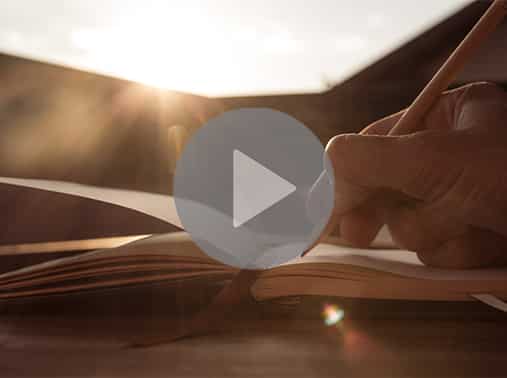These are spiritual days. By spiritual I mean days when we are less immersed in the daily quotidian of material survival, and more focused on the bigger issues of life: Why am I here? How do I deal with loss? Where are the souls of my departed beloved ones? What is the destiny of my and my family’s life? What does the future hold?
It’s extremely healthy for human welfare to have a season (not just a coffee break or a weekend) dedicated to soul searching and revisiting our life’s mission and our relationship with G-d.
The Jewish New Year and High Holiday season is ultra rich with layers of opportunity to peer deeply into our lives, and come out renewed and empowered to take on our life challenges.
In essence, the holiday season is comprised of three stages: Renewal on Rosh Hashana, Sanctity on Yom Kippur and Joy on Sukkot (for easy retrieval remember the acronym RYS: R for Rosh Hashana Renewal; Y for Yom Kippur Yechida; S for Sukkot Simcha).
Master these three forces – renewal, sanctity and joy – and your life will forever be different. Let me correct myself. Master is a strong word and presents a daunting task. Perhaps a better word is access. Access these three forces and your life will never be the same.
Renewal: One of our most powerful psychological adversaries is resignation, the sinking feeling that your life will never change. We are part of one endless merry-go-round that continues to repeat similar patterns, albeit in different shapes, forms and change of scenery, but do not fundamentally alter our reality. Rosh Hashana teaches us that we have the power to literally renew and revitalize our lives. Through prayer, focus and effort we can pierce the monotonous surface and access the enormous energy that lies beneath brimming with new possibilities.
Sanctity: The ultimate secret to an exhilarating and invigorating life is to recognize every experience as an opportunity – a challenge to sublimate and sanctify the experience. Simply put, you see every event in your life, even the most trivial, as part of your mission to refine develop and purify – or as the Kabbalists would say: to “elevate the sparks” within. Yom Kippur – the holiest day in the year – empowers us with the necessary strength to sanctify and integrate (sanctity and unity always go together) every aspect of our lives – to direct all our activities toward higher purpose.
Joy: The triad is not complete without joy. The renewal and sanctity of Rosh Hashana and Yom Kippur now must lead us to rejoice. Not just to live our lives, but to celebrate them. Joy is uplifting, freeing – a glorious dance of the human spirit as it soars like a bird.
Today we have precious few moments of joy in our overworked and overstressed lives. We compensate through escapist bouts of instant gratification, but don’t always have time to stay for the conclusion of the dance. Even as we celebrate we have our eye on the door and our minds on next days anxiety.
Comes Sukkot – a full cycle of seven complete days, encapsulating all time – and lifts us on its wings for a perpetual dance.
What and why are we celebrating?
Bodies don’t dance. Souls do. That is bodies on their own. Once the soul is exuberant, the body follows along – lifting its legs in dance, swinging its arms in joy and parting its lips in song.
When your soul feels free, when it has a sense of belonging, when it is aware of its purpose – it celebrates. Children are natural celebrators, until “adult” life dulls their senses and lowers their expectations.
So Sukkot is about expectations – renewed and sanctified by Rosh Hashana and Yom Kippur.
Celebrate them well.
Ok, now for the practical side of this. All the above is good and well on paper. But how – how do you begin to access your soul, how do you rejoice when you don’t feel their is anything to celebrate?
There are many answers, but the one that comes to mind just now lies in the inherent theme of Sukkot. On Sukkot we invite guests (ushpizin) – both cosmic and physical. We celebrate together.
Simply put, look at the people in your life. Study your Rolodex – phone, ipad, database or wherever you hold your contacts – and see how many of these people reinforce your life and lift your spirits. No doubt that you will find quite a number who are always ready to tell you how depressed things are and how bad you should feel. After all, misery does like company (some clichés happen to be true). Feeling good about yourself today? I’m sure you can find someone to call that will change your mood.
The key to this exercise is to avoid the people who make you anxious.
Find people who believe in you, who bring the best out of you, who empower you. Look for those that make you feel happy, proud and dignified (in a real way).
Find people who bring your soul alive.
And do something that brings other people’s souls alive.
Then you will see that you will be able to dance and celebrate.
***
The Yizkor Prayer
Obviously the Yom Kippur Yizkor prayer (and then again on Shemini Atzeret) is a towering expression of the introspection – and vulnerability – of the holiday season: No one standing at the Yizkor service is immune from the profound impact of a departed parent. For good or for bad a parent is always part of you – ever so keenly felt after the soul has passed on.
Personally, with the passing of my father a few years ago, Yizkor has now become part of my reality and that of my siblings. The first time I said the words “Remember G-d the soul of my father Gershon Dovber ben Freida who departed to his world…” – my entire life, all the 48 years I was honored to spend with my father on Earth, passed before my eyes. Millions of moments – some conscious, most unconscious, going back to pre-conscious early childhood – flooded my brain. Not the details, but the memory of one winding life story – the sum total of a life – impossible to describe in words.
Tears rolled down my cheeks, as they did on the cheeks of my fellow Yizkor rememberers, as they recalled by name their parents’ souls.
Then it dawned upon me. The power of Yizkor is in its name. Yizkor means to remember. Would it have been better to wipe our memories clean and forget our fathers and mothers, and by extension all the pain and grief left by their loss? We orphans were given a great gift – the gift of memory. We have the power to remember our parents, and invoke their names before G-d. We have been blessed with the power of eternity – the ability to remember our parents who came before us. And one day (until Moshiach comes) – we too will be remembered.
Death is horrible. But to forget is worse.
My thoughts were reinforced when we came to the Yom Kippur Musaf service in which we recollect the story of the Ten Martyrs. Each martyrs death is a profound story of its own. The one that struck me this year was Rabbi Chananya ben Tradyon. When the Romans discovered him teaching the outlawed Torah they wrapped him in a Torah scroll, piled bundles of twigs around him, and before setting him afire they placed damp woolen cloths on him to prolong the agony of being burned to death…
As the flames engulfed him, his disciples asked him, “Master, what do you see?” Rabbi Chananya replied: “I see a scroll burning, but the letters are flying up to Heaven.”
Yes, many holy body scrolls have burned throughout history. The bodies of the Ten Martyrs, the bodies of those that fell to the sword of the Crusaders, the Inquisition, the pogroms and all the persecutions, murders and pillages that left Jewish blood running through the streams of European cities. And then finally – the six million holy scrolls that went up in smoke just 60 years ago. Not ten. SIX MILLION…
Far too many scrolls have burned.
Yet, even at his moment of painful death, Rabbi Chananya left us with an eternal message: “but the letters are flying up to Heaven.”
We want the letters here on earth in the scrolls where they are meant to be. And we will surely have them back here one day. But we can take solace as we say Yizkor that the letters are flying to – and in – heaven.
And with our Yizkor memory we can make them fly on Earth as well.
With this awareness I think I can dance a bit this Sukkot.
Transform your High Holiday experience starting with Elul through Rosh Hashana, Yom Kippur, Sukkot and Simchat Torah with best-selling 60 Days: A Spiritual Guide to the High Holidays.








It is so powerful and sounds like you had placed this just now!